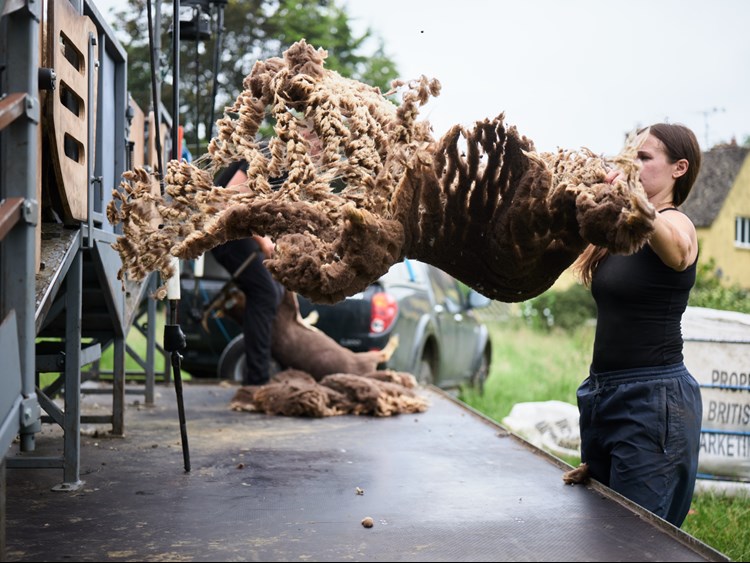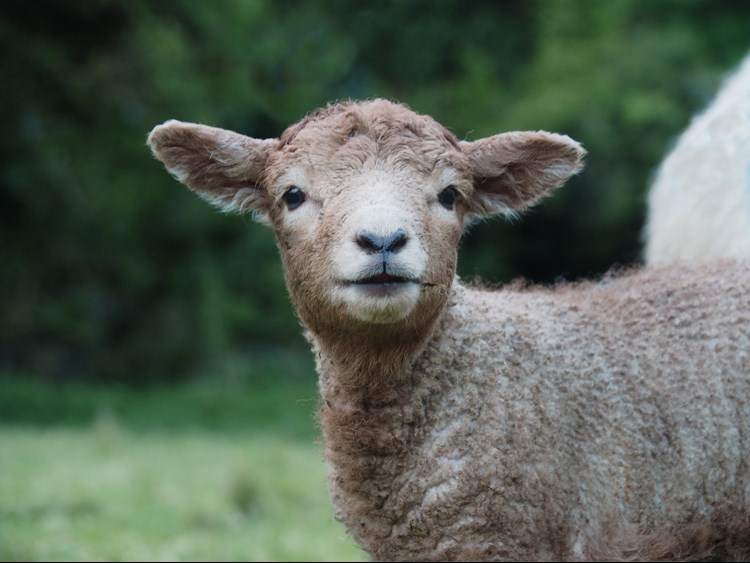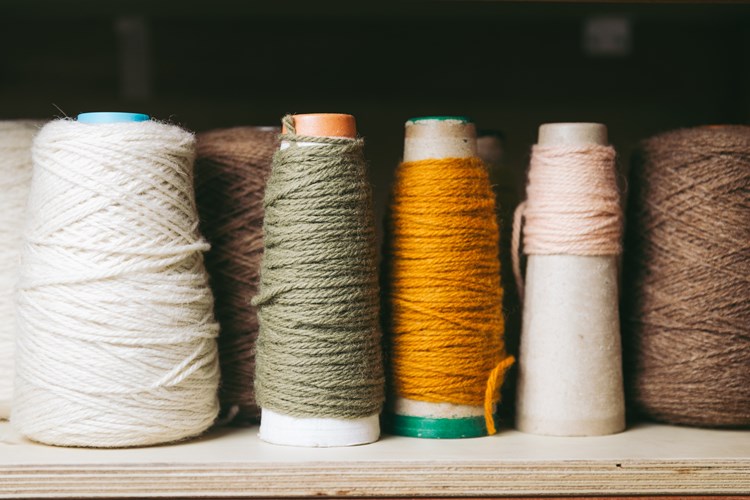October is Wool Month
This month is Wool Month, a good excuse to shout about the remarkable qualities of wool and the ecosystems it supports, both environmental and social.
When shopping for new clothes, we often don’t consider the fibres they are made from, or even the roles farmers might play in that process. Unfortunately, most clothes produced today are made with synthetic fibres like polyester, which will take thousands of years to biodegrade and leave a toxic legacy in our soils.
Wool is a fantastic fibre that is not only biodegradable and durable, but also reacts to our body’s temperature, keeping us warm in the winter and cool in the summer. The fibre is renewable - sheep need to be sheared every year and using British wool in fashion and textiles also gives farmers another source of income.
Sadly, global competition and the demand for cheap synthetic alternatives has made it difficult for farmers to receive a fair price for the wool they produce, including organic farmers. Farmers often do not get a premium for selling wool as organic, meaning it gets sold in with other wool, or it is being used as a waste product.
This seems tough when organic farmers go the extra mile to protect the environment and work to the highest welfare standards. As an organic farmer I don’t use synthetic fertilisers or chemicals on our grassland, which means our pastures have a richer diversity to support nature and we focus on grazing practices that keep our soils healthy.
The animals live out their natural behaviours, with limits on flock sizes and natural approaches to reducing the risk of disease and stress. While antibiotics and wormers are permitted when needed for the animal’s welfare, organic flocks are not routinely treated with them like some conventional flocks are. Organophosphate dips are used in conventional sheep farming to prevent sheep scab, but these pose toxicity risks to both the sheep and humans, are also banned.
There are some amazing things happening with British wool that has been certified by GOTS (Global Organic Textiles Standard). Hypnos Beds offer a range of GOTS certified mattresses using wool from British farms. Naturalmat, another mattress company that is based in Devon, is currently sourcing wool directly from local organic farms like Fowlescombe Farm. In today’s manufacturing environment where it is so rare to have a local material go into a locally made product, this is a great initiative. Naturalmat is also working on developing a GOTS supply chain for this, that will allow the product to be GOTS certified. Looking for the Global Organic Textiles Standard (GOTS) logo ensures that the wool used in a product is completely organic and traceable back to the farm. It also ensures that all processing in the textiles supply chain is safe and sustainable, with only low impact chemical inputs allowed to be used.
Garthenor Organic, based on an organic sheep farm in Wales, also created the world’s first “sheep to shelf” certified organic yarn products. Garthenor helped to develop the GOTS standards back in 2006 and they have ensured their products have been certified since day one - so you can knit with a clear conscience when using their yarns.
As well as being an organic farmer, I work within the fashion industry to give nature an important voice in discussions around sustainability. A grassroots understanding of soil and nature is often missing in fashion conversations yet is key when looking at cradle-to-cradle design.

My daily life is rooted in the natural landscape and through my knitwear collection Katie Cotmarsh, I use my flock’s amazing organic wool as well as plant dyes grown in my botanical dye garden here at the farm.
I want to inspire future fashion designers to consider the soil when designing, looking at local and natural fibres, which is why I also lead the “Fashion as a force for nature” programme in my classroom space on the farm. This programme brings textiles students from across different age groups to consider how natural fibres are produced in a sustainable way that gives back to the environment, as well as the potential for fashion to be a source of good for local communities and wildlife.
The public is waking up to the environmental and ethical issues of the mainstream fashion industry, and organic wool is an important part of solution. I’m excited by the future of organic wool and hope my role as an ambassador for Soil Association Certification Fashion and Textiles will enable me to work closely with Soil Association Certification and industry stakeholders to develop the GOTS supply chains in this country to create a viable future for organic British wool.
By Katie Allen from Great Cotmarsh Farm
If you're on Instagram, follow Katie over at Great Cotmarsh Farm or Katie Cotmarsh

